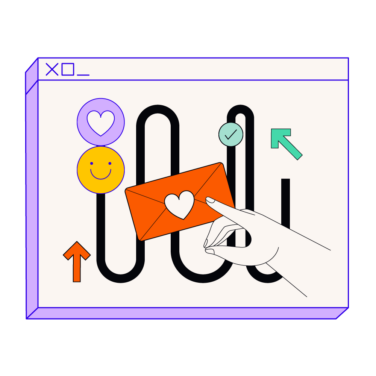
Valuable research is a critical foundation to any customer experience design practice.
A great research team can be a key collaborator in the process of making strategic and tactical business decisions, but all too often research teams are kept hidden away creating reports and dashboards that will never be given the change to unleash their opportunities.
To tap into the goldmine that research can provide, you need a leader who understands deeply the methodologies of research, but is also able to communicate with business leaders, operational design and development teams, and external clients.
A great user research leader is part researcher, part designer and part consultant.
The User Experience Researcher
A good user research manager obviously has to know how to assess, strategize, plan, conduct, lead, and evaluate research projects and programs of all different kinds - mixing qualitative and quantitative methods with ease, and providing results that provide actionable insight and business decision support. They will most likely have recommendations for what user research tools to use and when is the best time to employ them.
They will embody the traits of a great practitioner - to listen first, to question deeply and empathetically, and to rigorously interrogate all forms of data to uncover insight and truth.
A good research manager will know when to use generative and evaluative research methods. (Some great answers on this topic around the distinctions between Design Research and Market Research).
They need to choose the right research for the problem you are trying to solve, and can even use research to make sure you’ve picked the right problem to solve in the first place.
The User Experience Designer
A good user research manager needs to communicate research findings to others clearly, simply and in a way that can be actioned.
The modern user research manager doesn’t just create reports, they collaborate with teams and clients to solve business problems - so skills like writing well, sketching, ideation, prototyping and other kinds of problem solving are also very beneficial to help guide teams to take learnings from research into real-world solutions.
The User Experience Consultant
A good user research manager will need to work with internal and/or external clients to conceive and lead appropriate research activities and programs to meet business needs. They need to set and manage realistic expectations for the work and its outcomes.
They will be able to clearly tell the most important stories from the research that they’ve conducted, in an appropriate format suitable for audiences from senior executives to developers, to front-line staff.
(The executive summary is a powerful tool for a researcher to master.)
Sometimes they will go into battle for the team’s methods - justifying the value of insights from the relatively small sample sizes involved in qualitative research, for example.
A good research team leader will be able to clearly and carefully articulate those findings that powerful people don’t always want to hear.
Great ones will be able to generate new work and raise the profile of the team by spotting opportunities for research to add business value of one kind or another (selling more stuff, retaining customers, reaching new customers, etc.).
The User Experience Leader
A good user research manager needs to be able to lead and manage a research team, including people who aren’t their direct reports and may even be vastly more senior - in my own work I often recommend that executives participate directly in user-research as immersion is by far the best way for executives to learn what customers really think!
User research managers need to know how to lead individuals and teams, they need to manage resources and delegate work effectively, hire and motivate great staff, grow team skills, mentor junior team members. A good leader creates opportunities for their team and then let’s them do their job, providing rock solid support when necessary.
User Experience: Putting customers first
A great research team is part of the foundations of any customer-centric practice. If you are seeking to build or empower your own research team and develop the capabilities to help put customers first, consider attending my workshop on Building and Leading Effective Digital Teams, or just get in touch to talk about your business needs.


